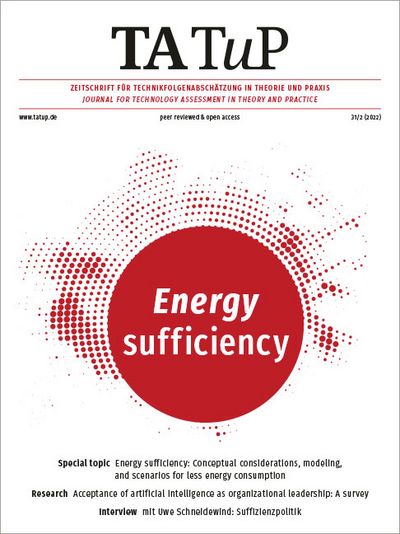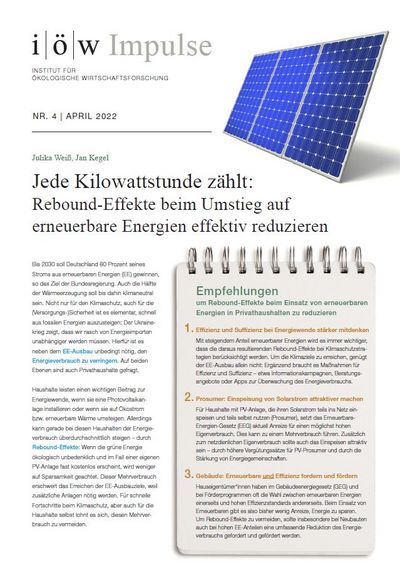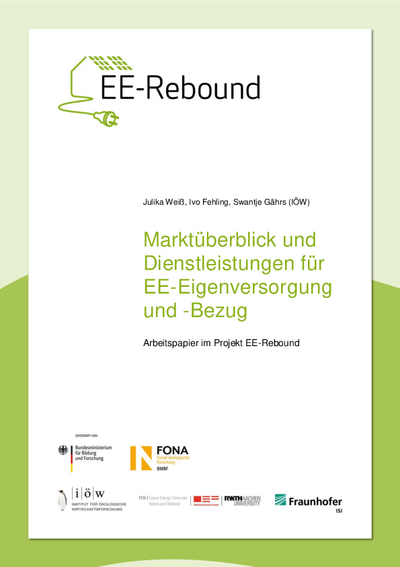Rebound Effects by Switching to Renewable Energies? Analysis of consumers and prosumer households (EE-Rebound)
Private households play an important role in achieving Germany’s climate protection targets. In addition to switching energy procurement to renewable energy sources (RE), it is also important for households to reduce their energy consumption. Many households have already switched to renewable energies. In addition to these RE-consumers, there are other households that produce energy from renewable sources themselves, they are called RE- prosumers. As part of the energy transition, it is expected that their number will grow significantly in the future.
But how does the switch to renewable energy sources affect households' overall energy consumption? Will the good conscience (“I use environmentally friendly electricity”) reduce the willingness to behave in an energy-saving manner? So is there a rebound effect? And, how can it be minimized or prevented? The main goal of the project is to answer these questions. It examines therefore how monetary and non-monetary factors such as social norms and moral licensing influence rebound effects. The research project will initially conduct qualitative interviews with prosumers. In a subsequent quantitative survey of consumers and prosumers, influencing factors and behavioral changes will be determined. Based on the survey data, the economic and ecological impacts will be estimated. Finally, proposals are developed for minimizing the rebound effects and for further reducing energy consumption.
The project involves a number of partners from practice (climate change agencies as well as companies providing services for renewable energy generation and renewable energy). The practice-relevant results will be presented to these target groups and to political actors.
IÖW Project Team
- Dr. Swantje Gährs
- Clara Lenk
- Nesrine Ouanes
- Antonia Sladek
- Lukas Torliene
- Jan Wiesenthal (né Knoefel)






![[Translate to Englisch:] What are the Impacts of Rebound Effects from Prosumers?](/fileadmin/_processed_/2/5/csm_Lenk_et_al_2022_EE_Wie_wirken_Rebound-Effekte_von_Prosumern_Haushaltsebene_3aca053cbb.png)


